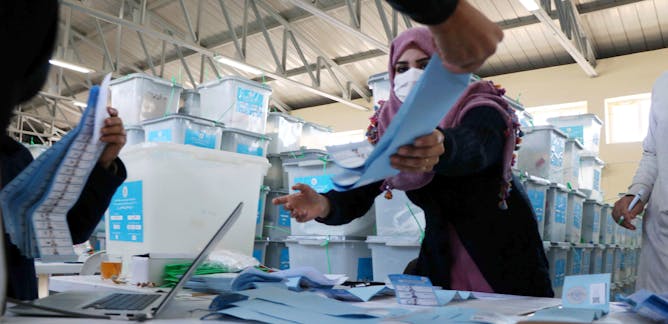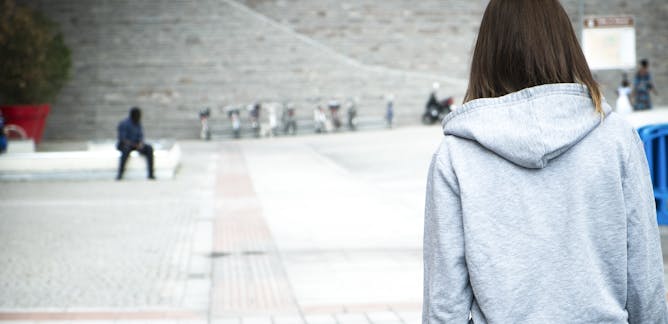|
Antibiotic resistance is one of the biggest issues of the 21st century. It threatens everything from global health to food security, making easily treatable infections like gonorrhoea and salmonellosis impossible to cure. The good news is that there might be a secret antidote. Manal Mohammed and Andrew Millard reveal that bacteriophages - viruses that infect bacteria - might be a possible alternative to antibiotics for treating bacterial
infections.
Harsh economic conditions at home and false pictures of a rosy life in Europe, often presented via social media, are just some of the drivers of illegal migration by young Nigerians. Lanre Ikuteyijo argues that it is important to understand the reasons they leave home, and to try and dispel the myths around what the future might hold for them in a foreign country.
|

Bacteriophages infecting a bacterial cell.
Design_Cells/ Shutterstock
Manal Mohammed, University of Westminster; Andrew Millard, University of Leicester
Bacteriophages are viruses that infect bacteria. But could they be key in solving the antibiotic resistance epidemic?
|

Migrants arriving on board the Aquarius ship of Sos Mediterranee, Palermo, Italy.
Igor Petyx/EPA
Lanre Ikuteyijo, Obafemi Awolowo University
Harsh economic conditions at home and false picture of rosy life in Europe contribute greatly to illegal migration by Nigerian youths
|
Politics + Society
|

Kaweh Kerami, SOAS, University of London
Why Afghanistan is still waiting to hear who its next president will be – nearly four months after the election.
| |

Aidan Forth, MacEwan University
The metaphors used to defend the 21st century’s largest system of concentration camps are chillingly similar to Nazi Holocaust-era justifications.
|

Joleen Steyn Kotze, University of the Free State
The precedent-setting ruling may cause jitters in dysfunctional municipalities around the country.
| |

Graham Hill, University of Leeds
The fear of 'racial tension' has been at the heart of many botched police inquiries into child sexual abuse.
|
|
|
Arts + Culture
|

Nolan Jones, Mills College
For the second year in a row, hip-hop music is the most popular form of music in the US. So why isn't it in more of America's classrooms? A hip-hop scholar weighs in.
| |

Bonny Norton, University of British Columbia; Espen Stranger-Johannessen, Inland Norway University of Applied Sciences
A free, open-access repository of multilingual children's stories is one response to the United Nations' urgent call to promote equitable education on the International Day of Education, January 24.
|
|
|